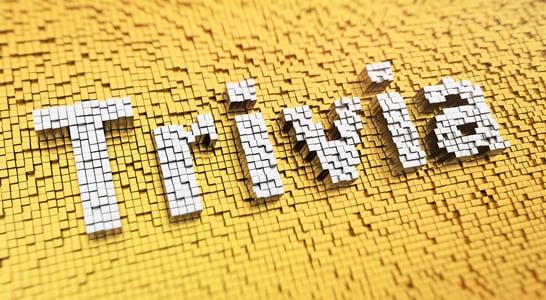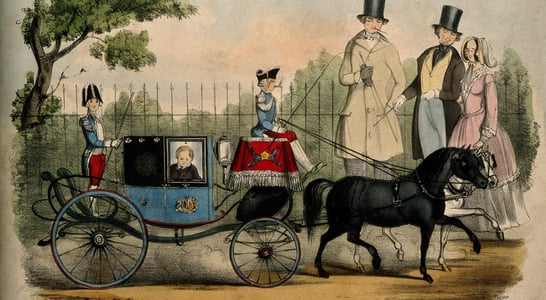
World Hypnotism Day
It's like a mind hack, slipping into a super-relaxed state, and suddenly, the solutions to your problems can appear.
Did you know World Hypnotism Day is a thing? Yep, it sure is! Every January 4th, folks around the globe shine a spotlight on the wonders of hypnotism.
This day isn’t about pulling rabbits out of hats. No, sir! It’s all about breaking down myths and celebrating how hypnotism can be a game-changer in people’s lives.
So, why do we celebrate this quirky day? Hypnotism has some pretty neat benefits, like helping people tackle fears, ditch bad habits, and even boost their overall well-being.
This particular day is all about spreading the word on how hypnotism can make a positive impact. Imagine being able to rewire your brain to quit smoking or overcome a phobia. That’s the power of hypnotism!
The importance of World Hypnotism Day goes beyond fun facts. It’s a day to honor the science and history behind hypnotism, challenge those spooky myths, and engage with a community keen on exploring its potential for personal growth.
Whether through workshops, hypnotherapy sessions, or just reading up on the subject, a world of hypnotic wonder is waiting to be explored.
How to Celebrate World Hypnotism Day
Join a Workshop
One fun idea is to sign up for a hypnotism workshop. These sessions are packed with cool info and hands-on activities. They’re led by experts who can show you the ropes, making it a great chance to learn something new.
Experience Hypnotherapy
How about booking a session with a certified hypnotherapist? It’s a unique way to relax and might even help you tackle some personal challenges. Plus, it’s a firsthand experience of hypnotism’s benefits, which is pretty cool.
Watch Demonstrations
Seek out live hypnotism demos. These are not only fascinating to watch but also offer a peek into how the mind works under hypnosis. Observing a professional at work can be an eye-opening experience.
Dive Into Books
Reading up on hypnotism can be surprisingly captivating. There’s a whole world of books out there that explore its history, science, and applications. It’s a great way to satisfy your curiosity from the comfort of your own home.
Engage Online
Lastly, the internet is a treasure trove of resources. From enlightening webinars to interactive forums, there’s no shortage of ways to connect with fellow hypnotism enthusiasts. Sharing insights and experiences online can broaden your understanding and even introduce you to new friends.
History of World Hypnotism Day
World Hypnotism Day, celebrated on January 4th, is a unique occasion to raise awareness of the benefits and truths of hypnotism.
The day was kickstarted in 2004 by a group of professionals, including the renowned Board Certified Hypnotist Tom Nicoli. They aimed to debunk myths surrounding hypnotism and promote its real advantages.
The origin of hypnotism dates back to the 18th century, when Franz Mesmer was considered a pioneer in the field. His work and that of James Braid in the 19th century laid the groundwork for modern hypnotism. These figures are celebrated for their significant contributions to the practice.
The main goals of World Hypnotism Day are to correct misunderstandings about hypnotism, introduce people to its therapeutic potential, and honor the contributions of its pioneers.
The day is filled with activities ranging from workshops and hypnotherapy sessions to engaging discussions and demonstrations to educate the public about hypnotism’s positive impact on mental well-being.
By participating in World Hypnotism Day, people can explore hypnotism as a legitimate tool for personal change, stress reduction, and overall mental health improvement.
This day provides a platform for individuals to experience the benefits of guided relaxation and personal transformation under the guidance of certified hypnotists.
World Hypnotism Day FAQs
Did ancient civilizations use hypnosis?
Yes! Hypnotic practices trace back to ancient Egypt, Greece, and Rome, where they used trance-like states for healing and spiritual rituals.
The Greeks used a sleep temple technique called “temple sleep” for physical and spiritual healing.
These historical roots reveal how trance states were respected long before modern hypnotherapy came into existence.
How is World Hypnotism Day celebrated in different countries?
On January 4, countries celebrate differently: the U.S. and UK host workshops and demos, while some Asian hypnotherapists offer free sessions to promote mental wellness.
In Ireland, events honor Dr. Jack Gibson, an Irish pioneer of medical hypnotism who promoted hypnosis in surgeries.
Are there myths about hypnotism’s powers?
Hypnotism myths abound! Some believe hypnotists can control others, but that’s impossible.
Hypnotists can’t “make” someone cluck like a chicken unless they’re willing to.
Despite Hollywood portrayals, people under hypnosis remain aware and retain control, breaking the myth of the “mind-controlled zombie.”
What was the role of ‘animal magnetism’ in hypnosis history?
In the 1700s, Franz Mesmer theorized that a force he called “animal magnetism” could induce healing.
His trances were dramatic but debunked. Though flawed, Mesmer’s ideas inspired hypnosis pioneers to explore scientifically, marking an early chapter in modern hypnotism’s story.
Did hypnotism play a part in military history?
Yes! Hypnosis has helped soldiers cope with trauma and manage pain in combat.
During World War I and II, some physicians used hypnosis to treat “shell shock” (now PTSD), finding that it could relieve anxiety when other methods failed.
Are there hypnosis competitions or “hypno-sport”?
Some stage hypnotists challenge one another to perform unusual “instant inductions” on volunteers.
While this “hypno-sport” isn’t mainstream, it showcases the lighter side of hypnotism, where hypnotists entertain crowds with feats of suggestion and quick hypnotic inductions.
How did Hollywood shape hypnotism myths?
Movies like Get Out and The Manchurian Candidate suggest hypnosis can brainwash or trap minds, creating a lasting stereotype.
These ideas differ from reality, where therapeutic hypnosis relies on the client’s openness. World Hypnotism Day often addresses these misconceptions.
Do Indigenous groups practice hypnotism?
Certain Indigenous groups use trance states for spiritual purposes.
In South American shamanic practices, for instance, rhythmic sounds and chanting help individuals reach trance-like states for introspection, somewhat akin to hypnosis but rooted in tradition.
Can someone get “stuck” in hypnosis?
No, one cannot get “stuck” in hypnosis. Hypnosis is a natural state of focused attention that people drift in and out of, like daydreaming. Even if left alone, someone in hypnosis would either wake up naturally or fall asleep briefly.
Are there medical uses of hypnotism today?
Hypnosis helps in pain management, especially for chronic pain and surgeries.
Hospitals in Europe use it as an alternative to anesthesia in select cases, allowing patients to control pain without drugs, often for patients allergic to anesthesia.
.
See what else is happening…
There’s always more going on every month at Days Of The Year. Here are our favorites this month!
Also on ...
View all holidaysPop Music Chart Day
Groovy beats and catchy melodies that fill the airwaves, this musical genre is all about upbeat rhythms that get feet tapping and spirits soaring.
National Spaghetti Day
Savor your favorite Italian dishes from carbonara to meatballs, sign up to a pasta-making class or watch a thrilling Spaghetti Western.
National Trivia Day
Get your thinking cap on and test your knowledge with fun facts, interesting tidbits, and brain teasers.
Tom Thumb Day
In the 19th-century, a pint-sized boy became a sensation, performing daring feats and charming audiences with his wit.
We think you may also like...
International ASMR Day
ASMR can help sufferers of PTSD, anxiety, depression, and insomnia. It can also help relax you, no matter the reason. Check out Youtube to experience this phenomenon.
National Public Sleeping Day
Sometimes we all need a quick snooze, and there's no shame in catching some Z's wherever you can. Just make sure to set an alarm!








